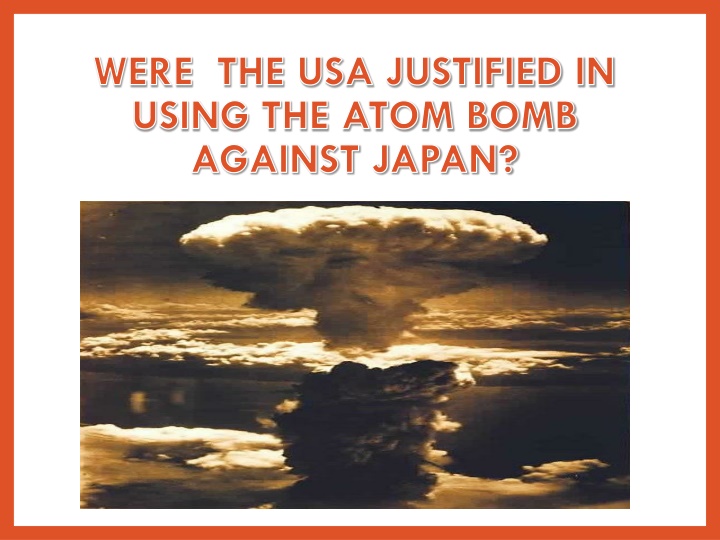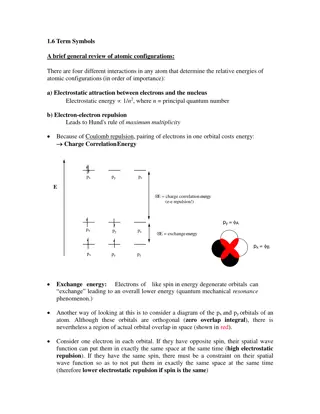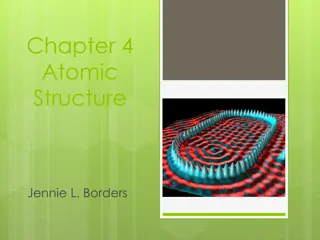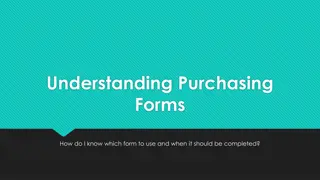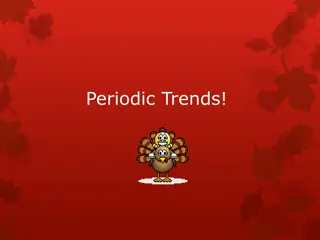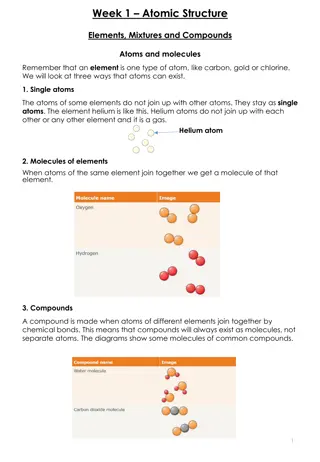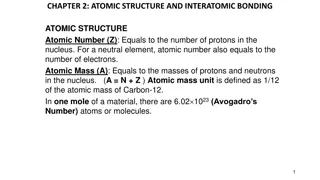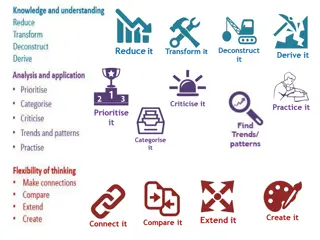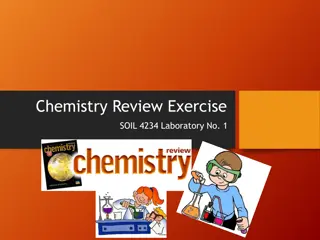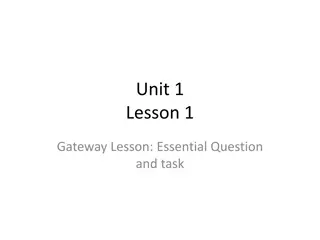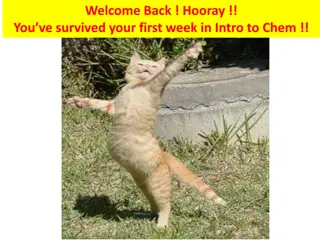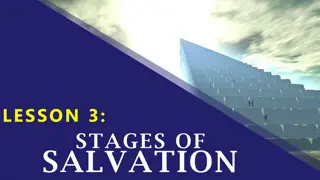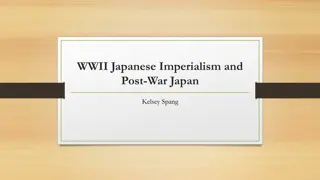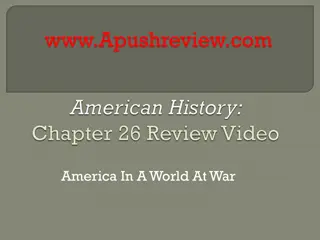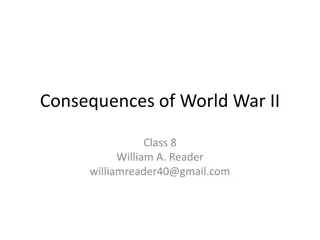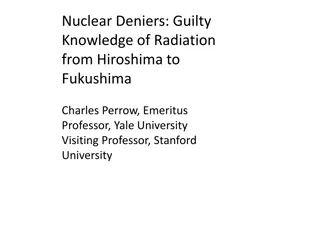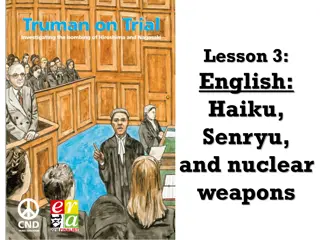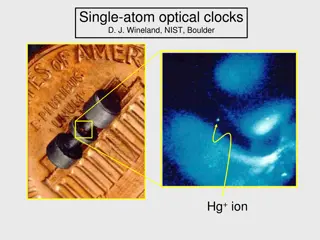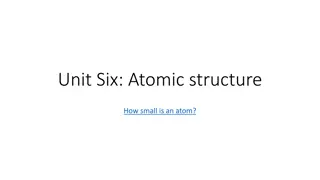The Atomic Bombings of Hiroshima and Nagasaki: Justification and Consequences
The United States justified the use of the atomic bomb against Japan in WWII to expedite the end of the war and save American lives, leading to the devastating bombings of Hiroshima and Nagasaki. President Truman's decision and its aftermath sparked debates on ethics, morality, and the human cost of nuclear warfare.
Download Presentation

Please find below an Image/Link to download the presentation.
The content on the website is provided AS IS for your information and personal use only. It may not be sold, licensed, or shared on other websites without obtaining consent from the author.If you encounter any issues during the download, it is possible that the publisher has removed the file from their server.
You are allowed to download the files provided on this website for personal or commercial use, subject to the condition that they are used lawfully. All files are the property of their respective owners.
The content on the website is provided AS IS for your information and personal use only. It may not be sold, licensed, or shared on other websites without obtaining consent from the author.
E N D
Presentation Transcript
WERE THE USA JUSTIFIED IN USING THE ATOM BOMB AGAINST JAPAN?
Atomic bomb dropped on Hiroshima The United States becomes the first and only nation to use atomic weaponry during wartime when it drops an atomic bomb on the Japanese city of Hiroshima. Though the dropping of the atomic bomb on Japan marked the end of World War II, many historians argue that it also ignited the Cold War. Since 1940, the United States had been working on developing an atomic weapon, after having been warned by Albert Einstein that Nazi Germany was already conducting research into nuclear weapons. By the time the United States conducted the first successful test (an atomic bomb was exploded in the desert in New Mexico in July 1945), Germany had already been defeated. The war against Japan in the Pacific, however, continued to rage. President Harry S. Truman, warned by some of his advisers that any attempt to invade Japan would result in horrific American casualties, ordered that the new weapon be used to bring the war to a speedy end.
President Truman speaks to the American people Watch the following speech as President Truman announces the use of the bomb. https://speakola.com/political/harry-s-truman-atomic-bomb-statement-hiroshima-1945 1. If you had just watched Truman s speech as an American what do you understand to have happened? 2. What is Truman s focus throughout the speech? 3. What tone does he use? 4. What s missing from his speech?
Hiroshima 6th August 1945 At 8.15am on August 6th, 1945, the American bomber Enola Gay dropped a five- ton uranium bomb (Little Boy) over the Japanese city of Hiroshima. A blast equivalent to the power of 15,000 tons of TNT reduced four square miles of the city to ruins and immediately killed 80,000 people. 16 hours later Harry S Truman ordered the Japanese surrender telling Japan to "expect a rain of ruin from the air, the like of which has never been seen on this earth." Tens of thousands more died in the following weeks from wounds and radiation poisoning. The death toll in Hiroshima is estimated between 90,000 and 146,000. Although roughly half of these deaths occurred during the day of the bombing. The others took up to FOUR MONTHS to happen! Japan did not surrender immediately, so America took action!
Nagasaki 9th August 1945 Three days later, at 11.01am bombing plane Bockscar dropped a plutonium bomb (Fat Man) onto the city of Nagasaki The death toll in Nagasaki is estimated between 39,000 and 80,000. Again roughly half of these deaths occurred during the day of the bombing. The others took up to FOUR MONTHS to happen! Japan finally surrendered on 14th August.
Watch this second clip giving a different perspective of the effects of the bombing. Hiroshima atomic bomb: Survivor recalls horrors - BBC News - YouTube How does this differ from Truman s account? The impact of the bomb
Why did America drop the atomic bomb on Japan? In May 1943, the U.S. was planning to use the bomb not on Germany but Japan. The following September, the U.S. and British leaders agreed to use the bomb against Japan. After spring 1945, with Japan in an extremely weak position, the United States was considering the following ways of bringing the long war to an end: invade the Japanese mainland in November 1945, ask the Soviet Union to join the war against Japan, assure continuation of the emperor system, or use the atomic bomb. The U.S. believed that if the atomic bomb could end the war, Soviet influence after the war would be restricted and domestically the tremendous cost of development would be justified.
Your task: Use the mystery cards to find arguments for and against. a. To impress the Soviet Union. b. To end the war with Japan. Economic reasons c.
How have opinions changed? I pray no man will have to witness that sight again. Such a terrible waste, such a loss of life. We unleashed the first atomic bomb, and I hope there will never be another. I pray that we have learned a lesson for all time. But I'm not sure that we have. I honestly believe the use of the atomic bomb saved lives in the long run. There were a lot of lives saved. Most of the lives saved were Japanese. VS Barack Obama called on the world to choose a future where Hiroshima was considered the start of our own moral awakening , as he became the first sitting US president to visit the Japanese city, 71 years after its bombing ushered in the nuclear age he vowed to bring to an end. In a scene many survivors of the US bombing believed they would never live to see, Obama laid a floral wreath at a memorial to the dead of the world s first atomic bombing, pausing in a moment of contemplation, his head slightly bowed. He then paid tribute to the people of Hiroshima, calling on humanity to learn the lessons of the past to make war less likely. On a bright, cloudless morning, death fell from the sky and the world was changed, he said, adding that humankind had shown that day it had the means to destroy itself Compare Obama s tone with Truman k-obama-first-us-president-to-visit-hiroshima-japan https://www.theguardian.com/world/2016/may/27/barac
Your task: Using the information from this lesson, including the videos, images and arguments sheet, write a paragraph explaining whether the USE were justified in using the bomb. You should consider: The impact and toll of WW2. The long and short term impact on the Japanese people. The impact on the relationship between the East and West. Additional resources to support: Remembering The Hiroshima And Nagasaki Bombings, 75 Years Later | Sunday TODAY YouTube WW2 Debate: Was The US Right To Drop Atomic Bombs On Hiroshima & Nagasaki? - HistoryExtra
